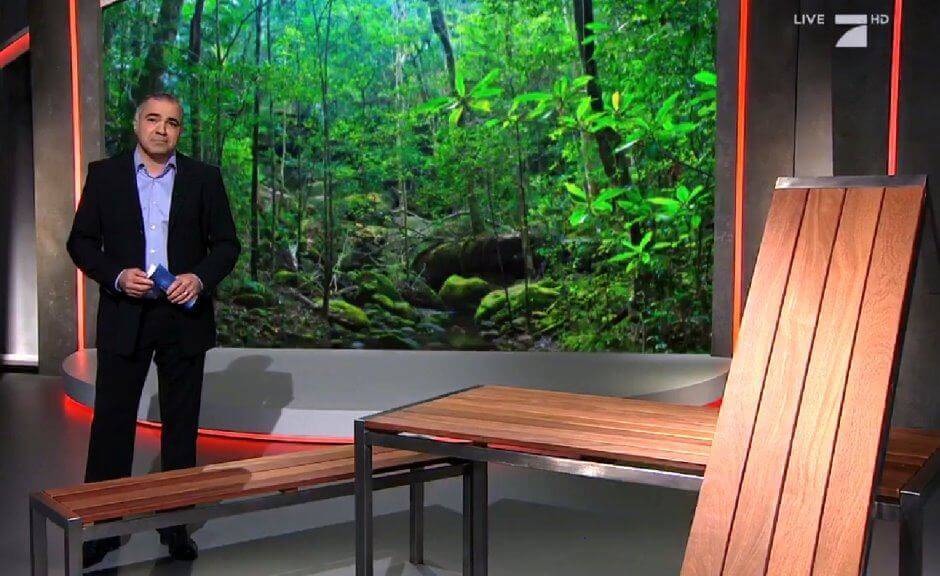From the rainforest in Peru to our warehouse in Germany: A shooting team accompanied our wood on its way and explained our sustainable business idea. link to the broadcast.
Our managing director Catherine Körting spent three days with the journalists in Peru. You have seen the frightening, bare overexploitation spots where only a short time ago the jungle with all its biodiversity stood. But together with our partners in forestry, they were also there, like a tree in the existing rainforest, after the strict regulations FSC criteria was selected and liked.
“This piece of rainforest is managed sustainably and only one tree is felled in this entire area. Every tree above a certain size has a number. From this it can be read: in this hectare exactly this tree was felled and no further trees may be felled here now. You have to wait for the forest to recover.", she explained to the film crew.
Poisonous snakes when felling trees
The forest, together with its diversity of species, remains despite management. As a result, the working conditions under which felling is carried out are much more difficult and dangerous than with conventional clearing. The workers first have to make their way into the jungle thicket with their machetes in order to reach the selected tree.
“During normal tropical timber clearing, machines cut down one tree after the other. Here our people have to walk in the dense jungle. All teams always carry this antidote against snake bites. After a bite, you have to keep administering it until you get to the hospital.", says the leader of the tree felling squad.
Almost all of the trees from this area go to Germany. This is something special for the forest workers: “I find it interesting that people in Germany want this kind of wood that has been felled with care. Actually, they could not care what happens to the forest here with us. But they don't care, I think that's kind of great."
The team accompanied the tree to the sawmill, where it was to be floorboards was planed. All workers have health insurance and are paid more than usual – another criterion for receiving the FSC seal.

Larch splinter, Cumaru holds
Back in Germany, in our warehouse in Nümbrecht, we showed what the technical differences are between tropical wood and so-called domestic wood. For the TV report we have a 1,5 kg iron ball on larch, on Douglas fir - and on Cumaru tropical wood drop.
A clear dent can be seen on the larch wood and splinters and splinters are exposed around the dent. You can also see the impact of the ball on the Douglas fir. And what about the tropical wood Cumaru? The iron ball hits the wood from the same height, but you can see – nothing.
The reason: while our native woods tend to be softer and therefore lighter, the tropical climate allows the trunks of tropical trees to grow extremely dense and solid like a greenhouse. So heavy that they even sink in water.
Garden furniture from Cumaru
In the report, tropical wood for the garden area is described as a kind of miracle wood. Because the dense wood structure largely prevents moisture or mold from penetrating. We then compared two pieces of decking wood that had been in use for six years. Siberian larch, a relatively popular wood in Germany that is relatively cheap. And the Cumaru from Peru.
"We have clear fungal infestation on the larch here, clear cracks - this terrace will maybe last another two years, then it will be rotten. With Cumaru, on the other hand, you still have a closed surface, there is no visible fungal growth, this terrace will last at least 25 years." sums up Philip Jaeger, managing partner of Betterwood the differences together.
At the end of the report were our finished ones Garden Furniture made of stainless steel and our FSC-certified Cumaru from Peru, two garden benches , and a garden table.


